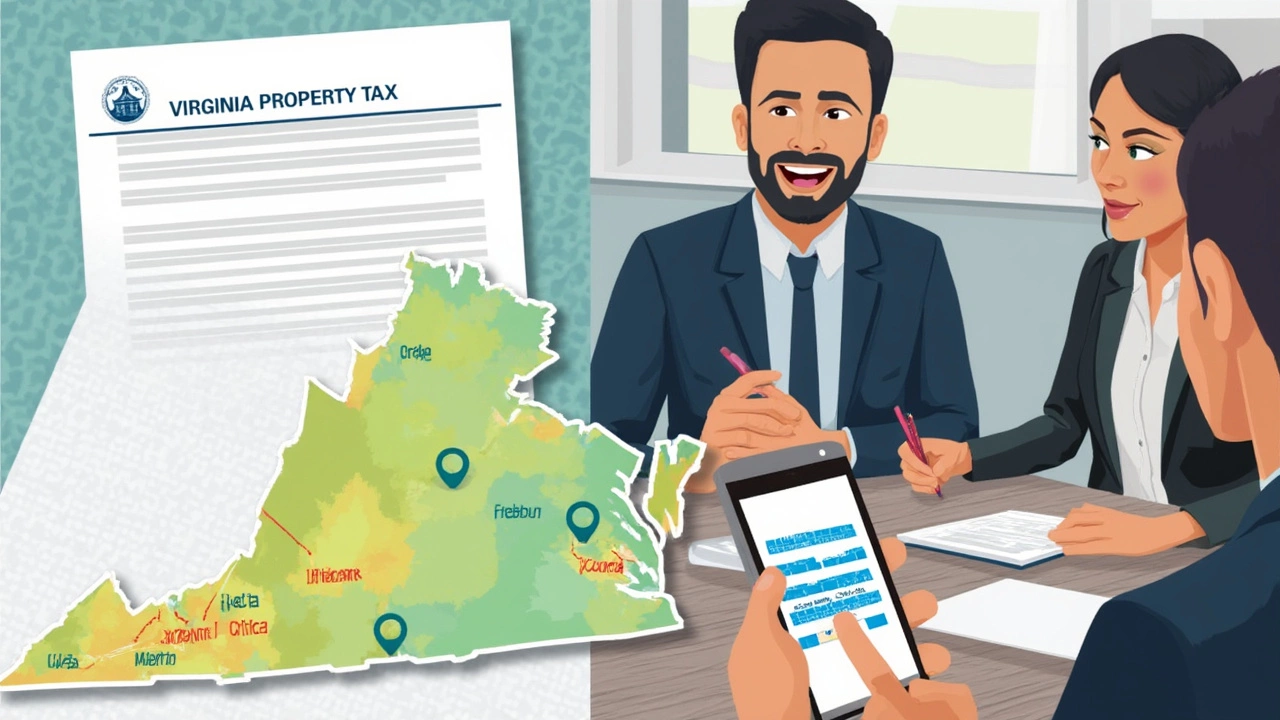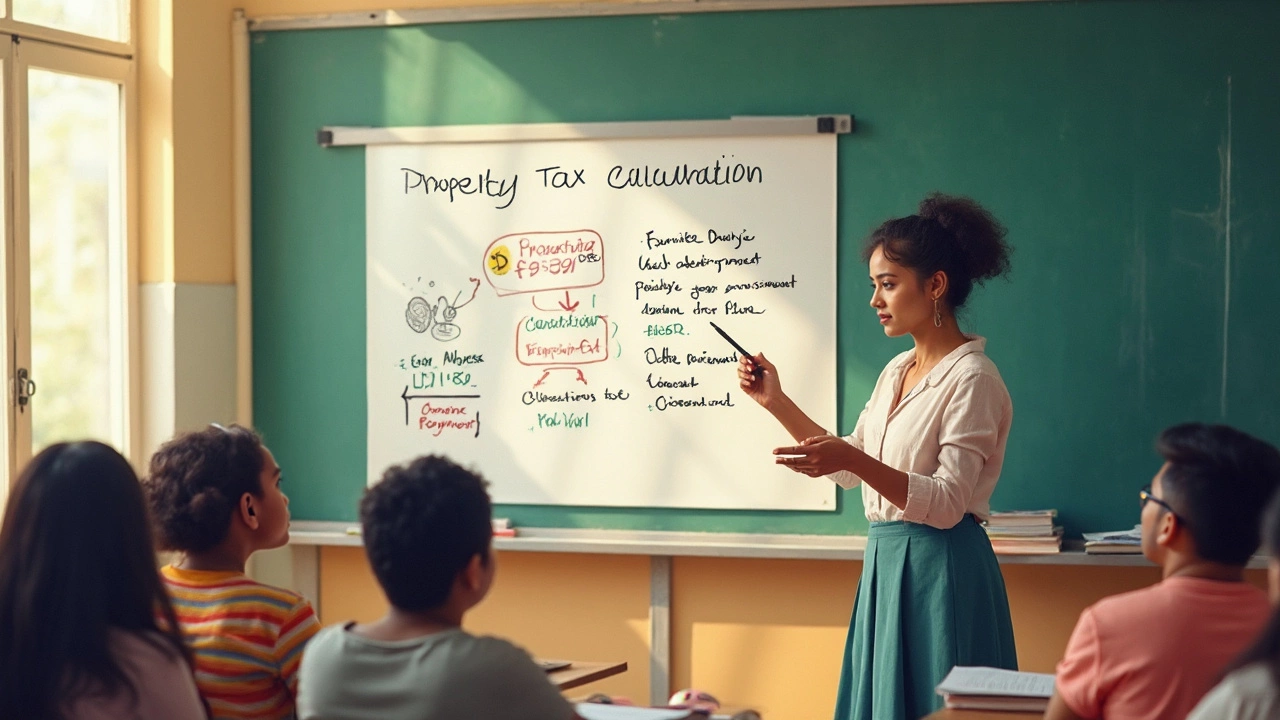Staring at a property bill that doesn’t make sense? Or maybe you’re curious if that cute home across the street is really a bargain. Knowing how to look up property taxes in Virginia can open up a treasure trove of information—about your own place and every plot in your county. Property taxes fuel local schools, help pave roads, and fund police. But where does your money actually go? And who sets those numbers anyway? Let’s roll up our sleeves and dig into Virginia property tax records. You’ll be surprised at what you can find for free, and how it might even lower your next bill.
Understanding Virginia Property Taxes: Who Sets Them and How
You might be shocked to hear that in Virginia, there isn’t just one blanket property tax rate. Instead, property taxes are set by each locality—meaning the county or independent city you live in. Virginia has 95 counties and 38 cities, and each one runs its own ship. Some, like Fairfax County, are notorious for higher rates, while others, like Highland County, keep things pretty low. Why such a huge range? Local governments decide how much money they need to run schools, fix roads, and keep the lights on at city hall, then set their rate per $100 of assessed property value. In 2024, rates swung from about $0.40 to over $1.25 per $100 of value.
The value your taxes are based on isn’t just what you paid for your house. Every year, or sometimes every two, a county assessor checks out the real market in your area and decides what your place is “worth” on paper. This is called the assessed value, and it’s not always the same as what you see on Zillow. Errors happen—sometimes they’re in your favor, but sometimes not. Many homeowners have no idea they can appeal if the assessment seems way off, which could mean hundreds or thousands of dollars in savings if you notice they’ve counted your bedroom addition twice or missed a recent sale price drop.
There are also exemptions and relief programs across Virginia, especially for seniors, people with disabilities, or those who served in the military. For example, disabled veterans may be 100% exempt from property tax on their principal residence. Even long-time owners in gentrifying areas can sometimes lock in lower rates. These facts are hiding in plain sight on local government websites—if you know where to look.
Here’s a quick snapshot of some 2024 property tax rates in Virginia, just to put the numbers in context:
| Locality | Tax Rate (per $100 assessed value) | Median Home Value |
|---|---|---|
| Fairfax County | $1.11 | $608,000 |
| Richmond City | $1.20 | $290,000 |
| Virginia Beach | $0.99 | $340,000 |
| Highland County | $0.48 | $177,000 |
Bottom line: Your Virginia property tax depends most on your location, how your local government does the math, and whether you qualify for any special breaks. Knowing how your taxes are set is half the battle—finding your bill is the next.

Step-By-Step: How to Look Up Property Taxes in Virginia
You won’t need to blow dust off any old microfiche readers. Pretty much every county and city in Virginia now puts their property tax records online. A quick Google search with your county’s name plus “property tax lookup” or "real estate assessment" will almost always get you to the right starting page. Still struggling? The Virginia Department of Taxation keeps a list of all local Commissioner of the Revenue offices, which is your backup lifeline.
Here’s a step-by-step game plan that works in almost any Virginia locality:
- Find the Official Local Site: Skip ads and private sites. Look for URLs ending in .gov or .us, and make sure you’re actually on your city or county’s domain. Example: augusta.countyva.gov or fairfaxcounty.gov.
- Look for 'Real Estate Assessment' or 'Parcel Viewer' Links: Some sites name it 'Assessment Search,' others have a 'Property Tax' tab. Dig into the menus as layouts aren’t always obvious.
- Search By Address, Parcel Number, or Owner: Most portals let you search by street address. If you have a tax map number or parcel ID (which is on your bill or deed), even better. Don’t have those? Owner name searches usually work but can be less precise if there are spelling mistakes or name changes.
- Review the Results: You’ll see details like the current owner, assessed value, land and building values, past sale dates, and sometimes how much is owed or paid that year. Some counties show tax history stretching back a decade.
- Download or Print the Page: If you’re appealing an assessment or need proof for some application, most sites let you save or print.
Some counties are a tech lover’s dream, with interactive maps, property sketches, and historic aerial views. Others still feel stuck in the 90s, but the info is there if you poke around. Fairfax County and Loudoun County are known for having the most detailed public portals, even showing zoning, building permits, and floodplain data right next to your tax info.
If you’re checking a property you don’t own—maybe you’re planning to buy, or just nosey—be polite. These records are public, but some details (like owners’ phone numbers or full deeds) aren’t always online for privacy reasons.
Some tips that can save you time and headaches when searching for Virginia property taxes:
- If you have a mortgage, your bank is probably paying your property taxes for you. That’s why you might never see an actual paper bill.
- Virginia property taxes are usually due in two installments: June and December. Miss the deadline by a day, and the late fees add up fast.
- If your assessment jumps up by a lot in one year, you should check if there were big citywide increases or possible mistakes—like an old shed that’s now being counted as finished living space.
- Look for links to 'GIS' maps. These show satellite photos tied to each parcel, so you can check lot lines and compare houses before you ever set foot on the property.
- For investors or flippers, checking old assessment records can highlight undervalued properties before they hit the general market.
You might bump into counties where you need to make an online account, especially to pay bills or see payment history. If the site looks ancient, try your public library or the county government office—they sometimes have better data onsite than they put on the web.

Making Sense of Your Tax Record: Beyond Just the Numbers
Finding the numbers is just the first step. Want to know if the tax bill matches what was promised when you bought the place? Wonder if your new addition actually raised your taxes or if your neighbor’s lot is worth more because it’s on a corner? Learning to read your property tax record will give you the answers.
Every property tax statement has a few essentials. First is the assessed value (what the assessor thinks your place is worth as of January 1). Next comes the tax rate, shown as dollars per $100 of assessed value. Multiply those two, and you have your tax due for the year. Sometimes there are line items for land value versus building value—handy for figuring out if improvements like sheds or decks are helping or hurting your bill.
You’ll also see exemptions listed if you, or a previous owner, qualified. Examples might be "elderly or disabled wanted relief," “veterans’ exemption,” or “land use deferment,” which is popular in farm country. If you see something odd—like a huge jump in assessed value, or a missing exemption you thought you qualified for—it’s time to call the local Assessor’s Office or appeal.
But here’s something most people miss: property tax records show not just current data, but also trends. If you spot that your home’s assessment always trails the sales price, or that neighbors’ homes of similar size are assessed much lower, you have comparison ammo. This is vital if you’re thinking about buying, selling, or challenging the assessment.
One cool move: check the 'sales history' sections. You’ll get the true numbers about what homes really went for, not just what was listed. That info is gold for buyers and sellers. Sometimes, you’ll even find out when properties were flipped, renovated, or subdivided—stories that aren’t told in Zillow listings.
Property tax data in Virginia stays public for a reason. It puts power in your hands and helps keep the system fair. So next time you wonder what’s driving your local school budget, or why your taxes spiked after that kitchen remodel, you know how to dig up the story.





